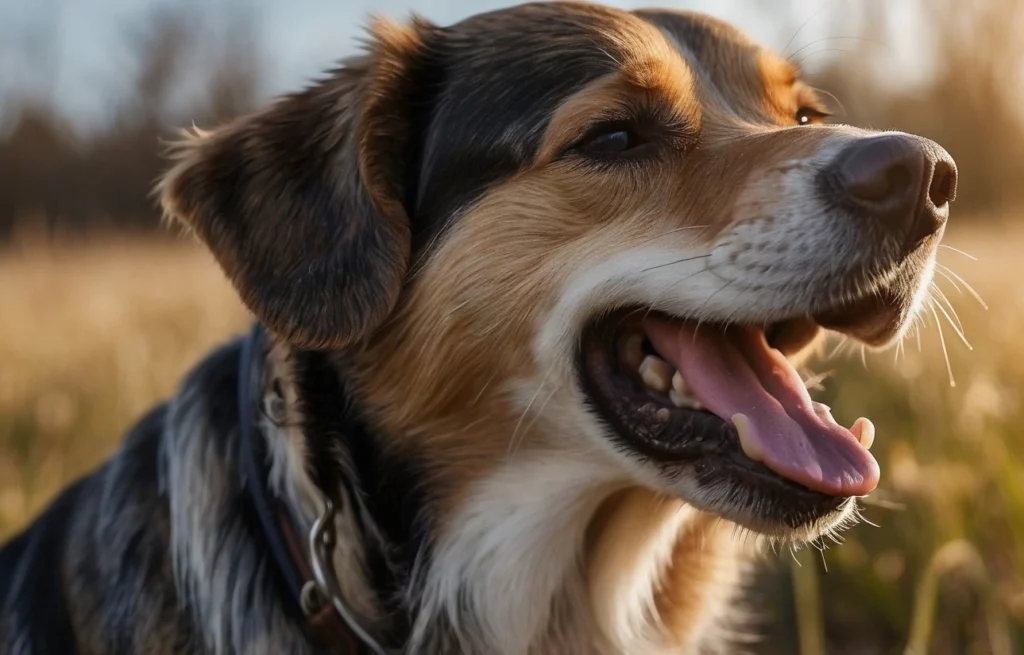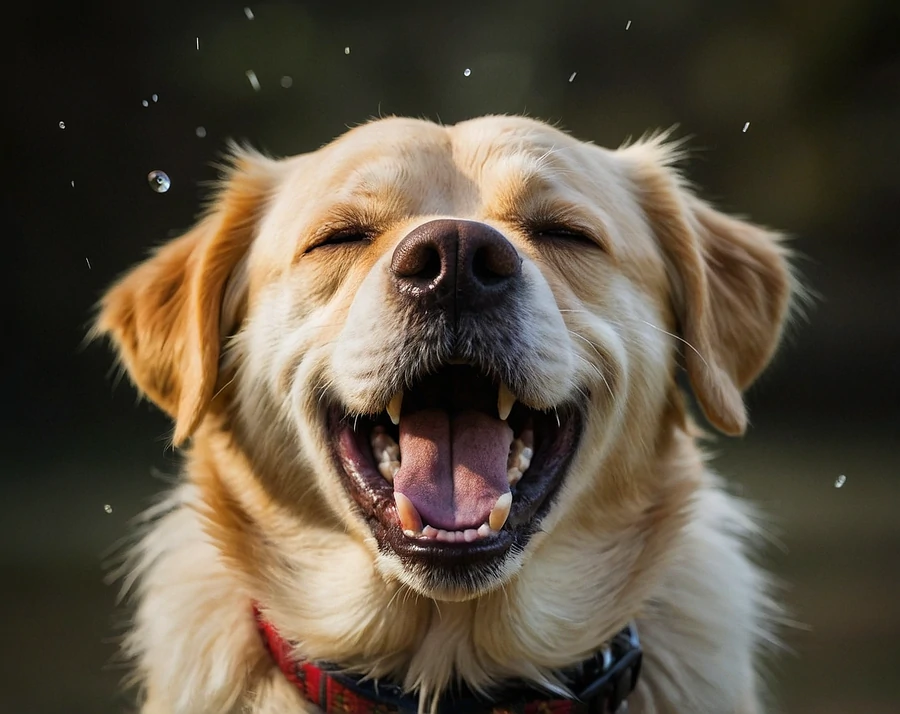Dog Sneezing: Causes, Treatment, and Prevention
Dogs sneezing can be an adorable sight, but it can also be a sign of various health issues. Understanding the reasons behind your dog’s sneezing, how to treat it, and ways to prevent it can help ensure your furry friend stays healthy and happy.

Causes of Dog Sneezing
Allergies and Irritants
Dogs, like humans, can suffer from allergies to pollen, dust, mold, and other environmental factors. They can also react to irritants like perfumes, cleaning products, or smoke. Common symptoms include sneezing, watery eyes, and itching.
Foreign Objects
Dogs are naturally curious and often sniff around, which can lead to small objects like grass seeds, dirt, or small toys getting stuck in their nasal passages. This can cause irritation and sneezing as the dog tries to expel the object.
Infections
Respiratory infections, whether viral or bacterial, can lead to sneezing. These infections often come with other symptoms like coughing, nasal discharge, and difficulty breathing.
Nasal Mites
Nasal mites are microscopic parasites that live in a dog’s nasal passages and sinuses. They can cause severe irritation, leading to sneezing, nosebleeds, and itching.
Dental Problems
Dental issues like abscesses or infections in the teeth can sometimes lead to sneezing. This happens because the roots of some teeth are close to the nasal passages.
Nasal Tumors
Nasal tumors, though relatively rare, can cause frequent and persistent sneezing along with nasal discharge or bleeding. These require prompt veterinary attention.
Reverse Sneezing
Reverse sneezing is a condition where dogs make a snorting sound as they rapidly pull air into their nose. It’s usually harmless and often caused by irritation of the soft palate.
Weight Gain
Overweight and obese dogs may snort or sneeze more due to excess fat pushing against their airways, making breathing harder.

Treatment for Dog Sneezing
Identifying and Avoiding Allergens
If allergies are the cause, identifying and avoiding the allergens is crucial. This might involve changing air filters, using unscented cleaning products, or avoiding certain outdoor areas. Antihistamines or other medications prescribed by a vet can help manage symptoms.
Removing Foreign Objects
If a foreign object is suspected, a vet visit is essential. The vet may need to sedate the dog to safely remove the object and prevent further complications.
Treating Infections
For infections, vets might prescribe antibiotics or antivirals depending on the cause. Keeping the dog in a clean, comfortable environment can also help speed recovery.
Managing Dental Problems
Dental issues should be addressed promptly with proper veterinary care, which might include tooth extraction or antibiotics for infections.
Handling Nasal Mites
Treatment for nasal mites usually involves antiparasitic medications or nasal flushing, under the guidance of a vet.
Dealing with Nasal Tumors
Treatment for nasal tumors may involve surgery, chemotherapy, or radiation, depending on the tumor type and location. Early detection and treatment are critical for a better prognosis.
Managing Reverse Sneezing
Reverse sneezing typically resolves on its own. Calming the dog and gently massaging its throat can help stop an episode. If episodes are frequent, a vet visit is recommended to rule out underlying causes.
Prevention of Dog Sneezing
Regular Vet Check-ups
Regular veterinary check-ups can help detect and address potential health issues before they become serious.
Maintaining Good Dental Hygiene
Regular teeth cleaning and dental check-ups can prevent dental issues that might lead to sneezing.
Healthy Environment
Keeping your dog’s living environment clean and free from potential irritants can help reduce the risk of sneezing due to allergies or infections.
Proper Nutrition and Weight Management
Maintaining a healthy diet and weight for your dog can help prevent issues related to obesity and improve overall health.
Safe Play Practices
Supervising your dog during playtime and keeping small objects out of reach can prevent accidental inhalation of foreign objects.

FAQ
Why is my dog sneezing so much all of a sudden?
Sudden sneezing can be due to a variety of reasons, including allergies, foreign objects in the nasal passages, or infections. It’s best to observe any accompanying symptoms and consult a vet if the sneezing persists.
How can I help my dog stop sneezing?
Identify and remove any potential allergens or irritants from your dog’s environment. If you suspect a foreign object or infection, seek veterinary care immediately.
When should I take my dog to the vet for sneezing?
If your dog’s sneezing is frequent, persistent, or accompanied by other symptoms like nasal discharge, coughing, or difficulty breathing, it’s important to visit a vet for a thorough examination.
Can dogs get colds that cause sneezing?
Yes, dogs can catch respiratory infections that cause symptoms similar to a human cold, including sneezing, coughing, and nasal discharge. Veterinary treatment is often required to manage these infections.
Is reverse sneezing dangerous for dogs?
Reverse sneezing is usually harmless and often resolves on its own. However, if it happens frequently, a vet visit is recommended to rule out any underlying issues.
By understanding the causes, treatments, and preventive measures for dog sneezing, you can help ensure your furry friend’s health and well-being. Regular veterinary care and a clean, safe environment are key to preventing and addressing the various causes of sneezing in dogs.

You might also like
Uncategorized
Today’s Recipes on SUPER CHEF CELEBRET – Puerto Rico (2026)
FOOD
4-Ingredient Christmas Shortbread Cookies Recipe – Galletas Navideñas Fáciles y Deliciosas
FOOD
Baked Feta Chickpeas Recipe – Receta Saludable, Fácil y Llena de Sabor